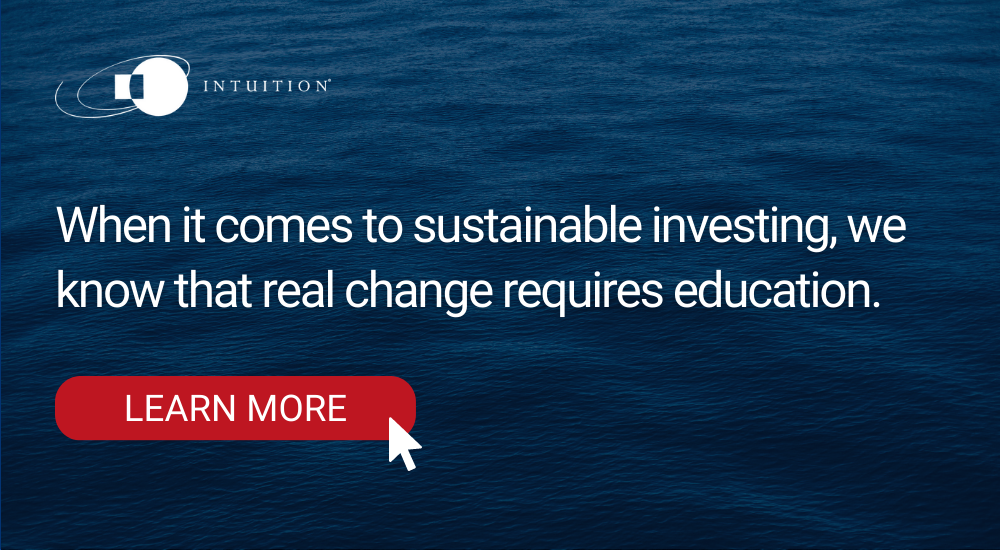
Sustainable Finance: How is the Regulation Progressing?
This article is taken from a discussion held between Intuition and three industry leaders on the area of climate change in the world of finance.
In this part of the discussion, Thomas Verhagen, co-founder of WeESG and Paul Fisher, a former Bank of England Executive Director, EU High Level Expert Group and UK Green Finance Task Force member, discuss the state of play for regulators in terms how regulation is progressing in response to a more sustainable finance driven economy.

What’s the state of play for regulators in terms of regulated sustainability in the financial sector?
Paul Fisher:
It’s moving. It’s not moving quite as fast as everybody would like, but there are reasons for that.
The regulators are not necessarily any better informed or knowledgeable on this topic than anybody else. Let’s be honest. I think even they would admit that.
The advantage of being a regulator is not that you know more, it’s that you can see what everybody’s doing. You can look at all the firms and you can see who’s doing what. As a result, you can work out what best practice looks like. That’s your knowledge advantage.
What’s happening is an iterative process where, as the industry develops, and the regulators watch closely, the industry and regulators learn off each other. For example, the regulators will learn off of best practice and from outside groups.
When I was working at the Bank of England on this issue, Cambridge and other groups were among those involved in helping advising the bank on how to think about this area. No one institution can make progress on this on their own.
What regulators will do is try and bring everybody up to the same speed and put in minimum standards. That’s how this area of finance is progressed. However, the stress test the Bank of England are currently preparing and going to go through is exploratory – it’s not the final word – there won’t be consequences this time around but there might well be in the future.
Again, a lot of this is predictable. Not many countries have yet gone as far as we have in the UK in terms of actual supervisory interventions. In Europe, Northwest Europe is probably the most advanced, but I’ve been speaking to country’s central banks across the globe and not a single central bank is not interested in this topic. Even those who are doing nothing, or even oil producing countries in the Middle East, are trying to work out strategies on how to cope with sustainable finance.
The last time I looked there were eighty seven agencies, regulators, and central banks signed up to the network for greening the financial system. They want to understand this issue and that can be seen through a recent publication of a paper on operations. This is quite an esoteric topic, really, but it is wide-ranging, so much as this topic can be. Now, all the cracks are showing around central banking and regulation.
There’s a long way to go, but we’re on this learning curve and it’s not going to stop anytime soon. I think you just expect there to be more and more developments, but it is so predictable. If you know how regulation develops, people can see this coming.

Do you think there is an active exchange between regulators of the various jurisdictions? And what do you see happening in this space?
Paul Fisher:
The Fed have been interested in this topic for a long time. I know that because I spoke on this topic in the New York Fed in 2018. They were well up-to-date with it then and they’ve been following developments. I’m pretty sure the Fed have done quite a lot of thinking on this topic.
Overall, I’m not sure how much the US banking industry has progressed. Certainly the US elements of the banking industry which are based in London, are very well up to speed. I’ve talked to many London-based US banks and they’re doing a lot of good work in this area. However, I get the impression their American bases are not so advanced, and the Fed is going to need to bring them along.
As mentioned, a lot of this is being developed as we go – it’s not proven exactly how they want to do regulation in this space. It’s going to take some time for the Fed to catch up, but they are now signing up to things like the NGSS. And I expect them to play a very important role in doing that.


